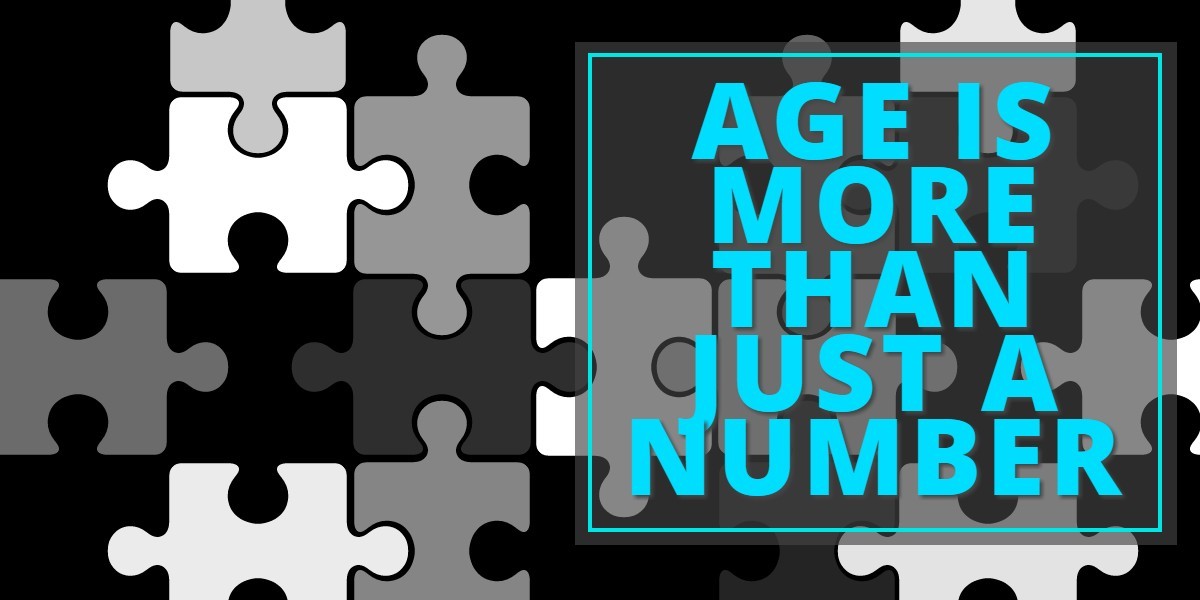Is Age Just A Number? Redefining Age And Its Impact

Table of Contents
The Biology of Aging: More Than Just a Number
While the simple answer to "Is Age Just a Number?" might seem yes, the reality is far more nuanced. Our biological clocks are ticking, and understanding the processes involved is crucial.
Cellular Aging and its Processes
Cellular aging is a complex process driven by several factors.
- Telomeres: These protective caps on our chromosomes shorten with each cell division, eventually leading to cellular senescence. Lifestyle choices, like smoking and poor diet, accelerate telomere shortening.
- Cellular Senescence: This is a state where cells stop dividing but don't die, accumulating damage and potentially contributing to age-related diseases. Genetics plays a role in determining the rate of senescence.
- Genetics: Our genes undoubtedly influence our lifespan and the rate at which we age. However, lifestyle significantly impacts gene expression and can mitigate some genetic predispositions.
Understanding these processes helps us target interventions aimed at extending healthy lifespan and improving the aging process. Keywords: cellular aging, telomeres, senescence, lifespan, genetics, aging process.
Age-Related Diseases and Their Management
Age is a major risk factor for many diseases.
- Cardiovascular Disease: Heart disease and stroke are leading causes of death globally, with risk increasing significantly with age. Advancements in preventative measures, like improved diet and exercise, and treatments like stents and bypass surgery, have improved outcomes.
- Alzheimer's Disease: This neurodegenerative disease is more common in older adults, impacting memory and cognitive function. Research continues into prevention strategies and new treatments, offering hope for future management.
- Other Diseases: Other age-related diseases include arthritis, osteoporosis, and certain cancers. Medical advancements continue to improve diagnosis, treatment, and management options.
Keywords: age-related diseases, cardiovascular disease, Alzheimer's disease, prevention, treatment, medical advancements.
Societal Perceptions and Ageism: Challenging the Narrative
While biological aging is a fact of life, societal perceptions of age often contribute to negative experiences. This brings us to the core question of "Is Age Just a Number?" in the context of society.
Ageism in the Workplace
Age discrimination remains a significant issue globally.
- Hiring Practices: Older workers often face biases in hiring processes, sometimes perceived as less adaptable or technologically savvy.
- Promotion Opportunities: Limited opportunities for advancement can leave older workers feeling undervalued and underappreciated.
- Forced Retirement: Mandatory retirement policies, though becoming less common, still discriminate against experienced individuals.
Combating ageism in the workplace requires policy changes, education, and a shift in cultural attitudes. Keywords: ageism, age discrimination, workplace discrimination, employment, retirement.
Ageism in Media and Popular Culture
Media representations significantly influence how society views aging.
- Negative Stereotypes: Older adults are often portrayed as frail, incompetent, or irrelevant, perpetuating negative stereotypes.
- Positive Portrayals: Increasingly, media showcases active, engaged older adults, challenging traditional stereotypes.
- Advertising: Advertising often targets younger demographics, neglecting the significant spending power of older adults.
A more balanced and inclusive representation of aging in media is essential for challenging ageist attitudes. Keywords: ageism in media, media representation, age stereotypes, popular culture, age and media.
Psychological Well-being and Aging: A Mindset Shift
Maintaining mental and emotional well-being throughout life is crucial; this is a key factor when considering "Is Age Just a Number?".
The Importance of Mental Health in Later Life
Mental health challenges can affect individuals at any age but can be particularly significant in later life.
- Depression and Anxiety: These conditions are more prevalent among older adults, often linked to loss, social isolation, and physical health problems.
- Cognitive Decline: While some cognitive decline is a normal part of aging, conditions like dementia require specialized care and support.
- Support Systems: Strong social networks and access to mental health services are critical for maintaining well-being.
Addressing mental health needs in older adults is crucial for promoting quality of life. Keywords: mental health, aging, depression, anxiety, cognitive decline, well-being, mental wellness.
Positive Aging and the Power of Mindset
A positive outlook and proactive lifestyle choices can significantly influence the aging experience.
- Social Connection: Maintaining strong social connections combats loneliness and promotes happiness.
- Physical Activity: Regular exercise supports physical and mental health at all ages.
- Cognitive Stimulation: Engaging in mentally stimulating activities like learning new skills or playing games helps maintain cognitive function.
Embracing a positive mindset is crucial for healthy aging and for answering "Is Age Just a Number?" in a truly fulfilling way. Keywords: positive aging, healthy aging, lifestyle choices, social connection, physical activity, cognitive stimulation.
Redefining Age Across Different Life Stages
The question "Is Age Just a Number?" takes on different meanings across the lifespan.
Young Adulthood and Career Development
Age can influence career progression in younger years. Challenges include gaining experience and competing with more established individuals. However, youth often brings energy, innovation, and adaptability. Keywords: Young Adulthood, Career Development, Age and Career, Opportunities for Young Adults.
Middle Age and Life Transitions
Middle age often involves significant life transitions – family changes, career shifts, and reevaluation of personal goals. This period presents both challenges and opportunities for personal growth. Keywords: Middle Age, Life Transitions, Family, Career, Personal Growth.
Older Adulthood and Active Living
Older adulthood presents opportunities for continued engagement and contribution. Retirements can be periods of leisure, travel, and new pursuits, defying stereotypes and reinforcing the idea that age is not a limitation. Keywords: Older Adulthood, Active Living, Retirement, Wellbeing, Purpose.
Conclusion
The question, "Is Age Just a Number?", is far more complex than a simple yes or no. Age is a multifaceted concept shaped by biological processes, societal attitudes, and individual choices. While biological aging is inevitable, we can significantly influence how we age by actively addressing ageism, maintaining physical and mental well-being, and choosing a lifestyle that promotes longevity and fulfillment. Let's redefine what it means to age gracefully and challenge the notion that 'age is just a number' – let's make it a celebration of life's journey at every stage. Embrace the aging process and redefine your understanding of "Is Age Just a Number?" – the answer is within your power to shape.

Featured Posts
-
 Investigation Into Police Leaders Tweet Balancing Free Speech And Professional Conduct
Apr 30, 2025
Investigation Into Police Leaders Tweet Balancing Free Speech And Professional Conduct
Apr 30, 2025 -
 Hanh Trinh Cua Cong Nhan Dien Luc Mien Nam Tai Du An 500k V Mach 3 Nhung Thach Thuc Va Thanh Cong
Apr 30, 2025
Hanh Trinh Cua Cong Nhan Dien Luc Mien Nam Tai Du An 500k V Mach 3 Nhung Thach Thuc Va Thanh Cong
Apr 30, 2025 -
 Ru Pauls Drag Race Season 17 Episode 11 Unleashing The Ducks
Apr 30, 2025
Ru Pauls Drag Race Season 17 Episode 11 Unleashing The Ducks
Apr 30, 2025 -
 Uk Eurovision 2024 Remember Mondays Anti Hate Anthem
Apr 30, 2025
Uk Eurovision 2024 Remember Mondays Anti Hate Anthem
Apr 30, 2025 -
 Zelenskiy I Tramp Vstrecha V Vatikane
Apr 30, 2025
Zelenskiy I Tramp Vstrecha V Vatikane
Apr 30, 2025
